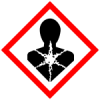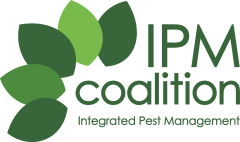The Producer has a plan to phase out Pesticides defined as…
Coalition status
BCI have plan to phase out
Fairtrade Yellow
This list contains 110 pesticides. The list is valid as of January 2018.
Pesticides which are flagged as being hazardous and should be only used with…
FSC ProhibitedThe Forest Stewardship Council (FSC) is an international non-profit, mission –driven, multi-stakeholder organization founded in 1994 to promote…
Rainforest prohibited PesticidesSAN HHP: phase-outThe SAN List of Highly Hazardous Pesticides consists of 230 pesticides:
SAN HHP Pesticides are classified as Highly Hazardous Pesticides according to…
UEBT ProhibitedThe use of Prohibited Agrochemicals is prohibited for certified, prioritised and verified ingredients, because they are considered Highly Hazardous…
UTZ ProhibitedA pesticide all uses of which have been prohibited by final regulatory action, in order to protect human health or the environment.
Details
Type: Multiple uses
Use: Other substance
Example applications:
Example pests controlled:
Mode of action: Inert
Source: PPDB
Toxicty
GHS carcinogen
Category 1A: the assessment is based primarily on human evidence
Identifiers
GHS safety labels
About Globally Harmonized System of Classification and Labelling of Chemicals (GHS)
From Wikipedia: The Globally Harmonized System of Classification and Labelling of Chemicals (GHS) is an internationally agreed-upon standard managed by the United Nations that was set up to replace the assortment of hazardous material classification and labelling schemes previously used around the world. Core elements of the GHS include standardized hazard testing criteria, universal warning pictograms, and harmonized safety data sheets which provide users of dangerous goods with a host of information. The system acts as a complement to the UN Numbered system of regulated hazardous material transport. Implementation is managed through the UN Secretariat. Although adoption has taken time, as of 2017, the system has been enacted to significant extents in most major countries of the world.[1] This includes the European Union, which has implemented the United Nations' GHS into EU law as the CLP Regulation, and United States Occupational Safety and Health Administration standards.
- H304
May be fatal if swallowed and enters airways
Class: Aspiration Hazard - H340

May cause genetic defects (state route of exposure if it is conclusively proven that no other routes of exposure cause the hazard)
Class: Germ Cell Mutagenicity - H350

May cause cancer (state route of exposure if it is conclusively proven that no other routes of exposure cause the hazard)
Class: Carcinogenicity
